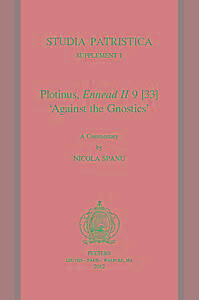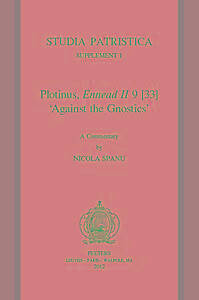
- Afhalen na 1 uur in een winkel met voorraad
- Gratis thuislevering in België vanaf € 30
- Ruim aanbod met 7 miljoen producten
- Afhalen na 1 uur in een winkel met voorraad
- Gratis thuislevering in België vanaf € 30
- Ruim aanbod met 7 miljoen producten
Zoeken
Omschrijving
This book consists in a commentary and translation of Plotinus's Ennead II 9 [33], entitled by Porphyry Against the Gnostics. The commentary has tried to go beyond the traditional approach, based on the idea that Plotinus's Ennead II 9 is the theatre of the clash of two antithetical worldviews: the first, championed by Plotinus; the second, by his Gnostic disciples; on the contrary, the Ennead II 9 [33] represents a dialogue between a master of philosophy and his own disciples. Plotinus's disciples do not regard Gnosticism as distant from Plato. In contrast, Plotinus does not think that Plato is a precursor of Gnosticism, even if he is aware that his doctrines can be interpreted in a dualistic and Gnostic fashion. He agrees with his disciples that for Plato sensible and intelligible reality, as well as Soul and body, are different; however, Plotinus thinks that their different nature can be ultimately traced back to the same principle, namely being, which contains in itself all possibilities of existence. This is the true gnosis that Plotinus has tried to make his disciples obtain by writing the Ennead II 9 [33].
Specificaties
Betrokkenen
- Auteur(s):
- Uitgeverij:
Inhoud
- Aantal bladzijden:
- 229
- Taal:
- Engels
- Reeks:
- Reeksnummer:
- nr. 1
Eigenschappen
- Productcode (EAN):
- 9789042925830
- Verschijningsdatum:
- 18/10/2012
- Uitvoering:
- Paperback
- Formaat:
- Trade paperback (VS)
- Afmetingen:
- 160 mm x 239 mm
- Gewicht:
- 430 g

Alleen bij Standaard Boekhandel
+ 170 punten op je klantenkaart van Standaard Boekhandel
Beoordelingen
We publiceren alleen reviews die voldoen aan de voorwaarden voor reviews. Bekijk onze voorwaarden voor reviews.











